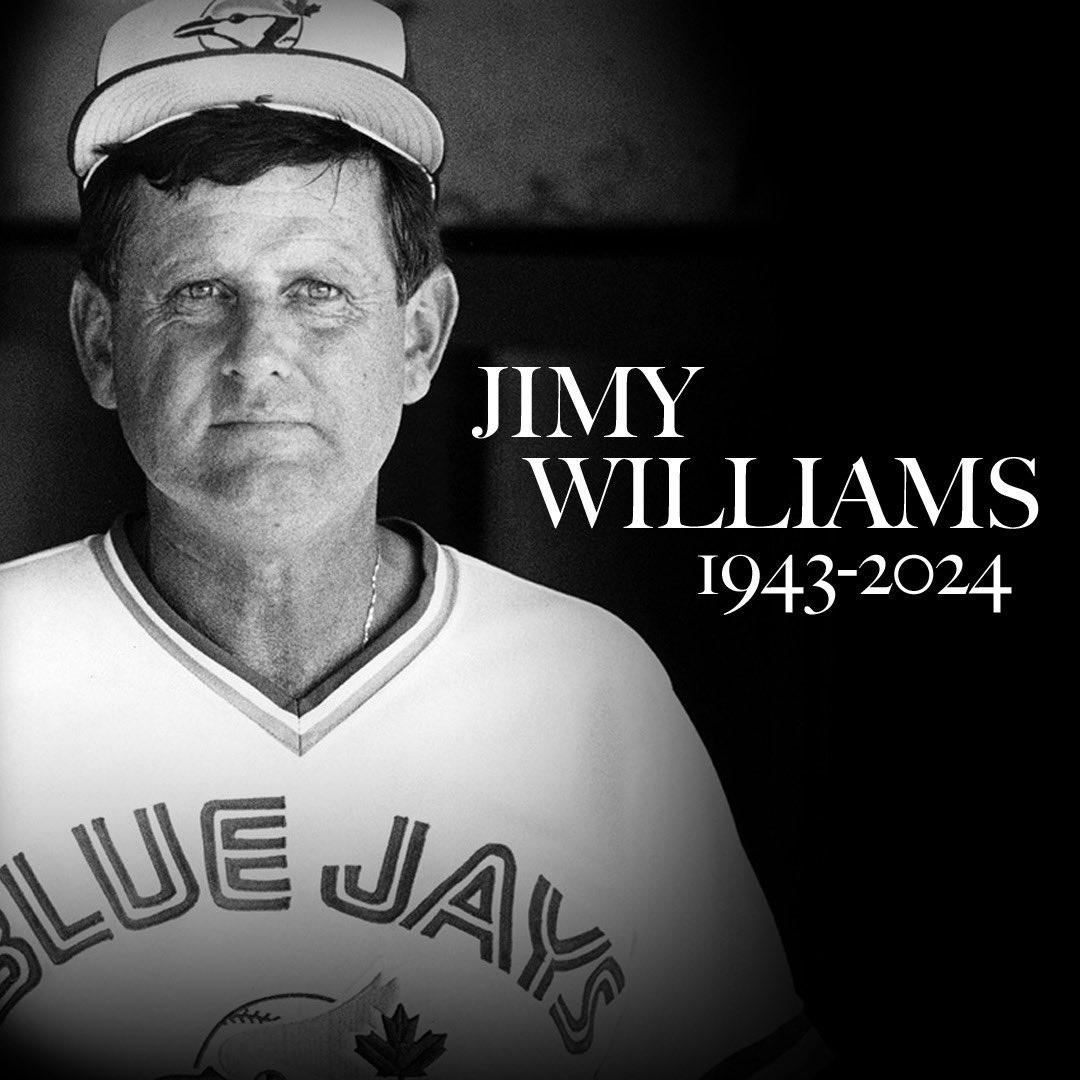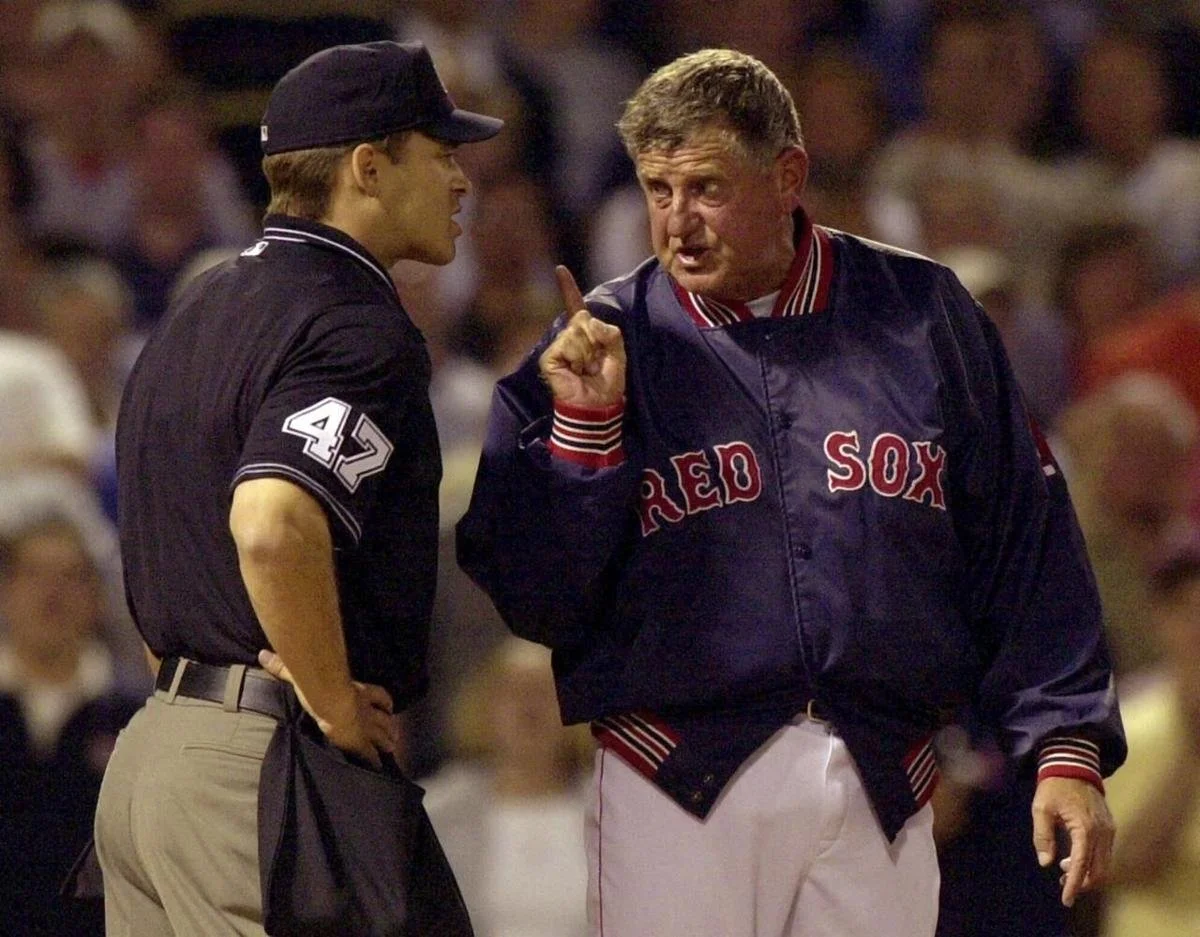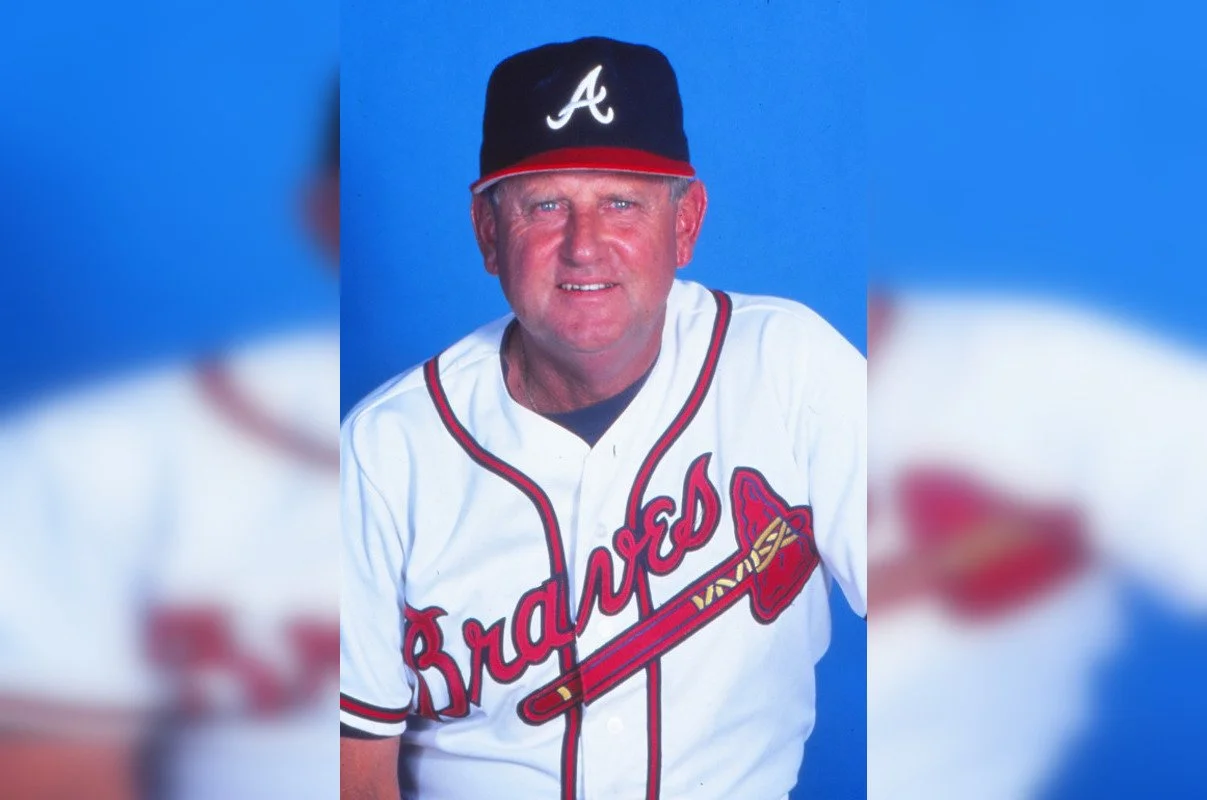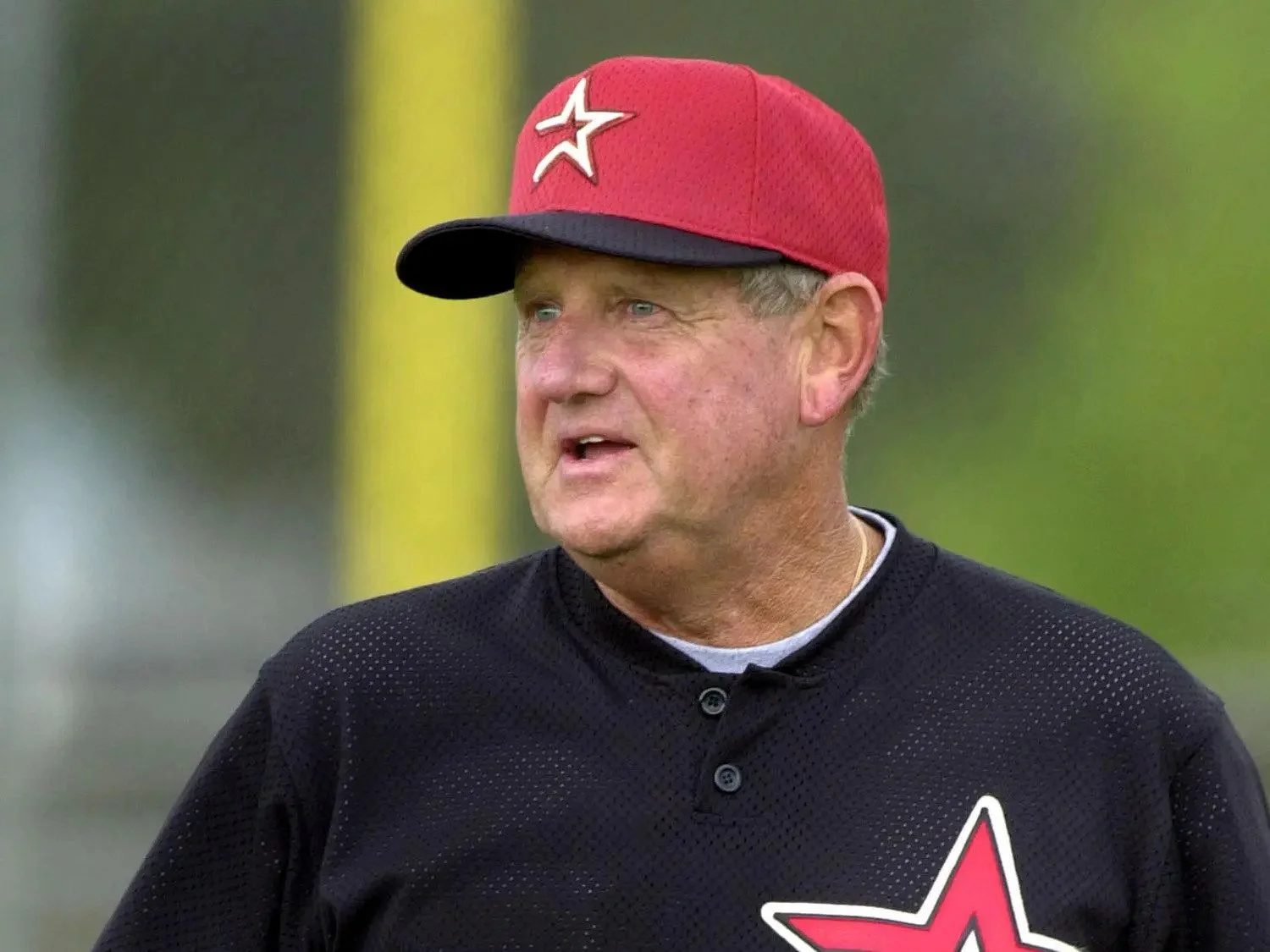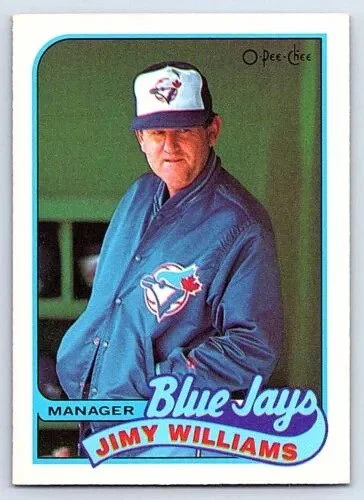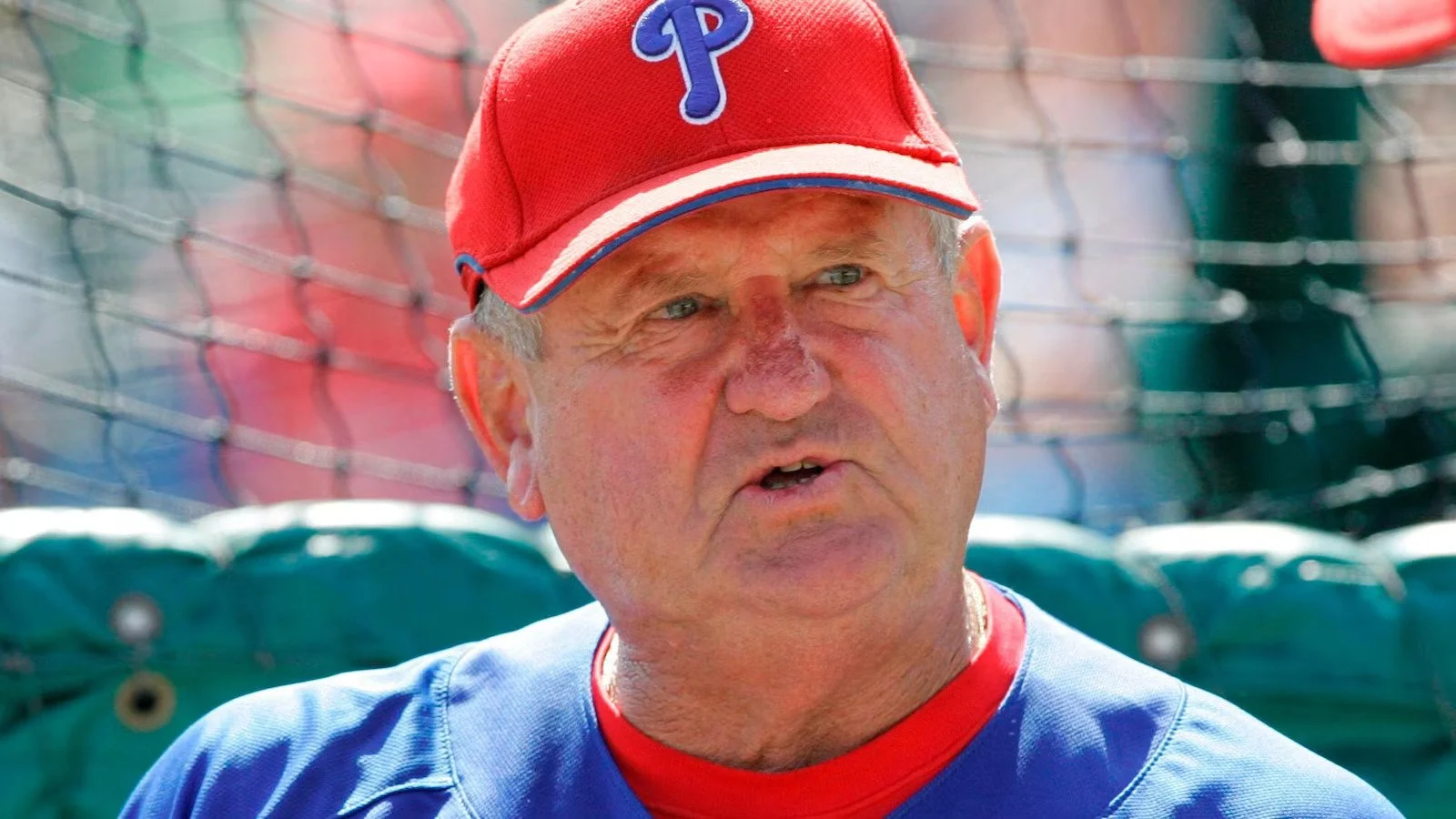Elliott: Remembering ex-Jay manager Jimy Williams, who always knew the sign
The late Jimy Williams, former Blue Jays manager.
February 1, 2024
By Bob Elliott
Canadian Baseball Network
For 916 games, Jimy Williams flashed signs at third base for your Toronto Blue Jays.
Not once did I know what the sign was -- from the coach’s box. And some might argue neither did Damo Garcia nor Kelly Gruber.
However, one day after early hitting in Boston, a TV guy asked him what Williams perceived to be a stupid question. Just the three of us were in the visiting manager’s office. Williams scorched him. It was the second worst rip job of a writer I had ever seen.
Worse than the one future Hall of Famer Dick Williams, the Montreal Expos manager, gave me on my first trip to Shea Stadium. But not as bad as one spring in Yuma, Ariz. when a San Diego Padres writer was verbally savaged by the general manager, the owner and manager Dick Williams ... three times within half an hour.
The Boston guy departed that day in 1988 -- he could have slid under a closed door ... same as myself that night at Shea.
Afterwards Jimy asked, “Now, what have you got for me Bobby?”
I said, “Well, James we’re going to have to have some signs from here on out before we proceed?”
“Signs?” Williams asked.
“Yup, next time I am half-way through a really dumb question -- even half way as dumb as that guy’s ... and you are about to explode ... I want you to tug on your right ear lobe.”
He asked, “And what pray tell does that mean?”
Jimy managing the Jays
I replied “It means my question will suddenly veer off in another direction ... maybe finishing with something simple like ... and who is pitching tomorrow.”
He laughed.
The late Jimy Williams, who died at age 80, was a good man. A good man with an excellent memory.
So, it did not matter when I saw him after his Jays days:
_ Be it in West Palm Beach, in Montreal coaching third base for his pal Bobby Cox, or in the post-season with the Atlanta Braves.
_ Or managing the Red Sox at Fenway, at Rogers Centre or in the post-season.
_ Or managing the Houston Astros.
_ And finally coaching with the Philadelphia Phillies in spring training in Clearwater or the post-season, the reaction was always was the same.
Williams would smile and before I could finish saying, “How are you James?” He would tug on his right ear.
* * *
START YOUR ENGINES: One morning we were in the coaches room at Municipal Stadium in West Palm telling stories about his time in Toronto. He told one. I laughed. Coach Ned Yost turned around and said, “Will you shut up -- they are going to announce THE POLE FOR THE DAYTONA 500.”
When Yost turned his back to the TV again, Williams tugged on his right ear and we headed into the main clubhouse.
* * *
EARLY BACKGROUND: Williams had three hits in 13 at-bats in the majors: a run-scoring single off Hall of Famer Juan Marichal, a single in the same game facing reliever Ron Herbel and singled against Bob Shaw. His first at-bat was against Sandy Koufax -- one of 2,396 whiffs the Hall of Famer had.
As an infield instructor, Williams was respected for his teaching abilities like Perry Hill and Ron Washington.
If you were paying attention to what Williams said, you learned and you got better.
* * *
FROM COACH TO MANAGER: I first met Williams in 1985. The Expos were out of the race, so I spent the final six weeks and the playoffs covering the Jays.
The next year I arrived to see Williams, now the manager as Cox had returned to Atlanta, hitting ground balls.
I asked him what was the toughest part of being the manager compared to coaching.
He told me to look over my shoulder.
Down the left field line in foul ground were six TV cameras ready for stand-up cut-ins to the nightly news.
“I only have to do five of them tonight,” Williams said with a sigh. He slashed the next ball hitting a liner over the infielder’s head. His blood pressure went up. So did his pre-game batting average.
* * *
HERE COME THE MEDIA: Williams was never comfortable dealing with the media. But he had a great sense of humor. Scouts talk about players having 5 o’clock power ... which means they could hit the ball out during batting practice, but not during a game. Williams had 5 o’clock humor.
Once when the Jays were in Arlington, they came into the air-conditioned clubhouse after early hitting (usually around 2 o’clock). Williams was in his office. A Dallas writer, who was shooting the breeze after he finished with the questions, asked: “So Jimy where do your kids go to school?” Jimy answered, “Well, all winter, until our first homestand, they go to school in Dunedin. Then we head north and they go to school in Mississauga. When our season ends, then we go back to school in Dunedin.”
The writer was shocked. “OH NO! How on earth do they learn? Don’t they teach your kids different things at the two different schools?”
Replied Williams with a wink at me: “Only one thing ... when they study the War of 1812 in Dunedin they say ‘We won.’ And in Mississauga they say ‘We won.”
I howled.
To finish the story the paper would not run the cute anecdote. The editor said that there was never a War of 1812, “it was a skirmish,” according to a reference book he had found in our library. I asked where the book was published. He said Ohio. I explained the Brits, the United Empire Loyalists, native Canadians and those from Upper and Lower Canada burned down the White House in 1814. I would say that was a war.
Finally, the man on the desk headed off elsewhere. First day he was off the desk I re-wrote the story and it made the paper as part of a notebook.
Jimy managing the Boston Red Sox.
* * *
A WASTED PLANE TICKET: When Williams was fired in Boston, with a 65-53 record in year five (after two 90-win seasons and two post-season appearances), the legendary Gordon Edes of the Boston Globe, followed him all the way to the airport and got on the same flight. Finally, at baggage claim in Tampa, the writer got two words out of Williams: “Gordon Edes.”
At the 2004 All-Star Game at Minute Maid Park in Houston, it was clear Williams was going to get fired the next day by Houston management with a 44-44 record. Williams was hitting ground balls. Edes walked up to Williams and said, “No matter what happens tomorrow, I’m not following you to the airport.” Williams roared.
Jimy coaching with the Braves, where he won a World Series ring.
* * *
SKATES’ FAULT: The biggest sign Jimy Williams ever gave the most important person involved did not even see.
Williams’ Braves were playing Game 7 of the 1991 World Series against the Minnesota Twins at the noisy Hubert H. Humphrey Metrodome before 55,118 screaming fans. Lonnie Smith had singled to open the eighth off Jack Morris in a scoreless game. Next Terry Pendleton doubled to left and Smith, also known as ‘Skates’ not because he played hockey, but because he often fell down running the bases, took off.
Broadcaster Tim McCarver always credited second baseman Chuck Knoblauch and shortstop Greg Gagne for faking Smith into sliding into second, pretending to turn a double play. The Braves said Smith lost the ball in the Plexiglas above the fence in left-centre.
However, Williams was waving furiously for Smith to come to third and he certainly would have scored on the gapper. All Smith had to do was look at Williams and he would have scored for fun ... for Skates could run. Smith did make it to third. Next, Ron Gant bounced to first and the runners stayed put. After an intentional walk to David Justice, the Twins escaped when Morris induced a grounder to Kent Hrbek, who threw home to catcher Brian Harper, who fired back to first for the 3-2-3 inning-ending double play.
The Twins won 1-0 in 10 innings as Morris threw 126 pitches in one of the two most exciting games I have ever seen.
When the Braves won Game 7 of the NLCS in 1992, ex-Jay Francisco Cabrera hit a pinch-hit single to left fielder Barry Bonds. Williams waved slow-footed first baseman Sid Bream all the way home from second base, beating the tag from Mike LaValliere by a hummingbird’s nose. President Jimmy Carter, of Plains, Ga. and a Braves fan, leapt from the box seats and ran across the field at Atlanta-Fulton County Stadium to shake hands with Williams.
Jimy managing the Astros …
* * *
ADDED REVENUE: At Minute Maid there is chicken advertising on the left and right field foul poles. It was Williams’ idea. He was driving along a freeway in Florida and he called Astros team president Pam Gardner to suggest they sell advertising for chicken on the ‘Fowl poles’ according to Texas Monthly sports columnist, Richard Justice.
Another day in Houston, with Atlanta in town, Williams told Justice to look in the other dugout. There was Greg Maddux, watching the Astros take batting practice. Williams said, “There’s a reason you win 300 games. You pay attention.” Expos manager Felipe Alou said the same to me one night when the Braves were at Olympic Stadium saying, “He doesn’t wear glasses when he pitches, but he has glasses on now studying our hitters -- when we hit.”
Once, when Houston’s Shane Reynolds was late covering first base in Oakland, an upset Williams was doing his usual, two and three-word answers post-game session with the media. He never blamed Reynolds, although it was clearly the pitcher’s fault. As writers left the office, Jimmy made a sound. Justice looked back. “PFP,” he said “PFP.” (PFP is pitcher’s fielding practice, a refresher session which Reynolds obviously needed.)
With the Astros, Williams had infielder Eric Bruntlett learn to play multiple positions. In the 2004 post-season, after Williams was fired, Bruntlett made a bunch of important defensive plays, one of them saving the Astros. This was long before Ben Zobrist became a thing.
* * *
UNFAIR IN TORONTO I: When manager Bobby Cox headed to Atlanta in 1986, the Jays brass turned things over to Williams. Cox left a mess behind in the form of the lineup.
Shortstop Tony Fernandez was anointed the new lead-off man, while second baseman Damo Garcia was demoted from the top of the order to ninth. He was not happy about it. Williams had to deal with it.
Jimy managing the Jays ….
* * *
UNFAIR IN TORONTO II: Williams’ Jays were three outs away from being 4 1/2 games up with six games remaining in the 1987 season. Kirk Gibson led off the ninth with a deep homer to right facing Tom Henke at Exhibition Stadium. The Tigers won in 13 when Gibson singled off Jose Nunez scoring Jim Walewander to salvage the final game of the four-game series.
In the sixth inning of the middle game of the next three-game series against the Milwaukee Brewers, Ernie Whitt slid into second and injured his ribs. Williams was already without Fernandez -- the team MVP according to Hall of Fame GM Pat Gillick -- who injured his elbow when upended at second by Bill Madlock in the opener of the four-game set with Detroit.
So, for the final four games -- one against the Brewers and three in Detroit, also known as the Mighty Melt Down in Motown -- Juan Beniquez, Cecil Fielder, Rance Mulliniks, Rick Leach and Lloyd Moseby batted either before or after MVP George Bell. They combined to go 6-for-36 (.167) with 11 strikeouts, as George Bell finished 2-for-26, including an infield single. Beniquez was 0-for-12, Fielder was 1-for-4, Mulliniks 2-for-10, Leach 2-for-4, McGriff 0-for-2 and Moseby 1-for-4.
It was not Williams’ fault he lost two of his three best hitters. Many a baseball man wondered aloud how long Williams would have managed the Jays had they won the AL East that year.
UNFAIR IN TORONTO III: After Bell’s MVP year, the Jays’ braintrust had the idea to have Bell DH and get 700 at-bats in the 1988 season. Never mind that only Fernandez in 1986 had been the only Jay to ever have more than 700 plate appearances (727).
Williams was there when club officials met with Bell. Bell agreed as long as he was given a long-term deal. Williams departed as the Hendricks Brothers, Randal and Alan, sat to talk contract. They settled on a two-year deal. Bell had wanted three.
So, Bell arrived in Dunedin in a full-blown snit. He had lost his position. Lloyd Moseby had lost his, too, and was moved to left. Rookie Sil Campusano was the new centre fielder. As DH, Bell hit three Opening Day homers in Kansas City facing former Cy Young Award winner Bret Saberhagen.
The doomed experiment last 10 games into the season. Bell was back in left. Moseby was back in centre. It was not Williams’ decision to move Bell from left to DH.
The Jays’ final three road games were at Fenway. I walked into Williams’ office and said, “I have a question?”
Williams answered, “You want to know why we are starting three lefties at Fenway?” He guessed accurately. Jeff Musselman, Mike Flanagan and Jimmy Key all won to cut the Red Sox lead from 6 1/2 games to 4 1/2.
The Jays returned home and swept the Baltimore Orioles to finish two games back of the Red Sox, tied with the Milwaukee Brewers. Just like 1987. As one player said, “People are going to look at 1987 and 1988 100 years from now and say, ‘Man they must have been great races in back-to-back years.’ We should have won in 1987. We weren’t close in 1988.”
After a 12-24 start in 1989 and being swept in Minneapolis by scores of 6-5, 10-8 and 13-1, Williams was fired. He was replaced by Cito Gaston, who should have won the manager of the year that season.
Jimy coaching with the Phillies, where he won another World Series ring.
* * *
FINAL SIGHTING: The last time we saw Williams was as a coach with the Phillies in 2008. He told me he was not coming back the next season.
“What am I going to do?” Williams repeated. “I’m going to get in a car and follow a bus.”
His son Brady was managing in the Tampa Bay Rays system.
One thing about Williams, he always knew the signs.

